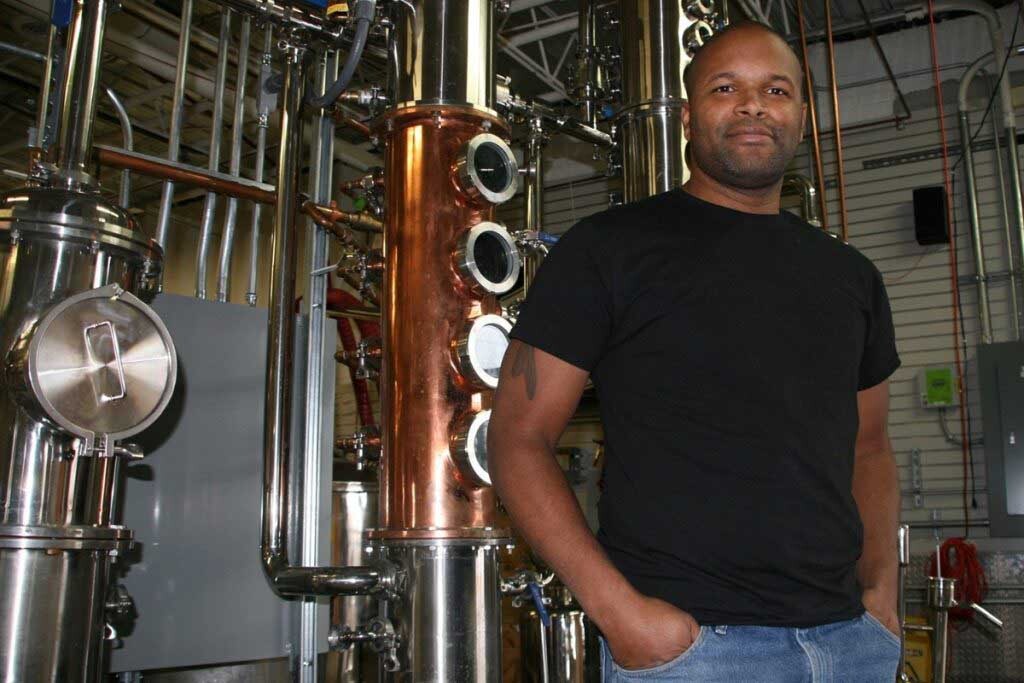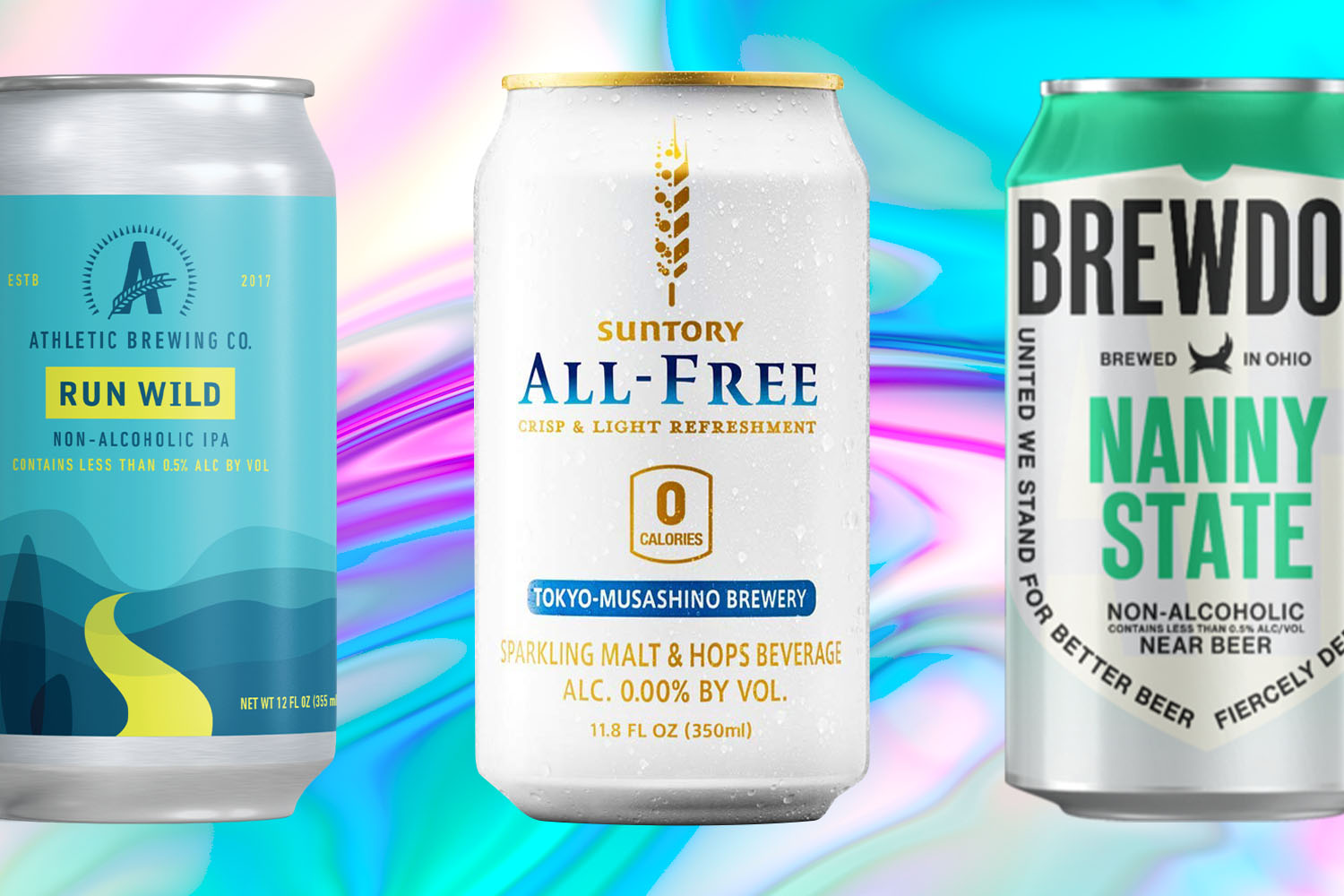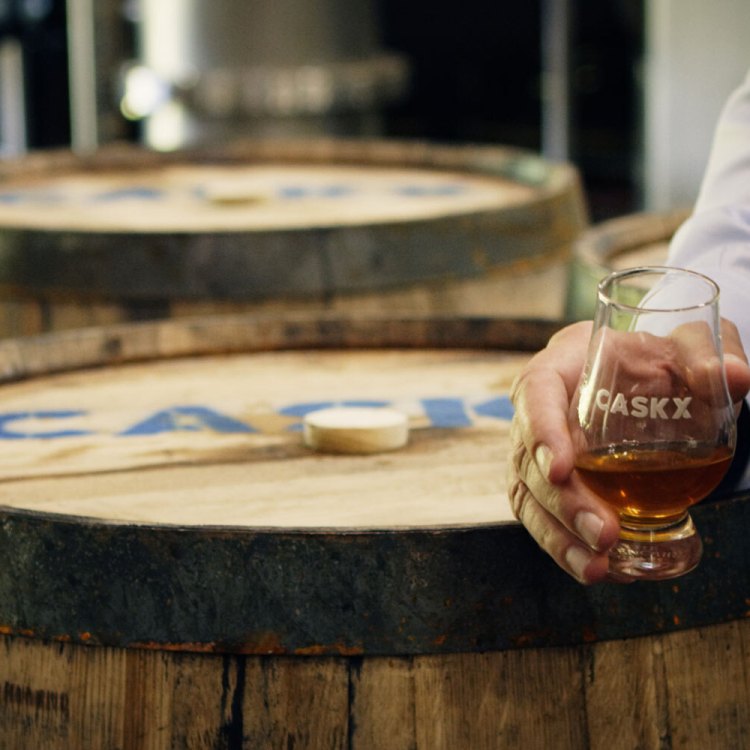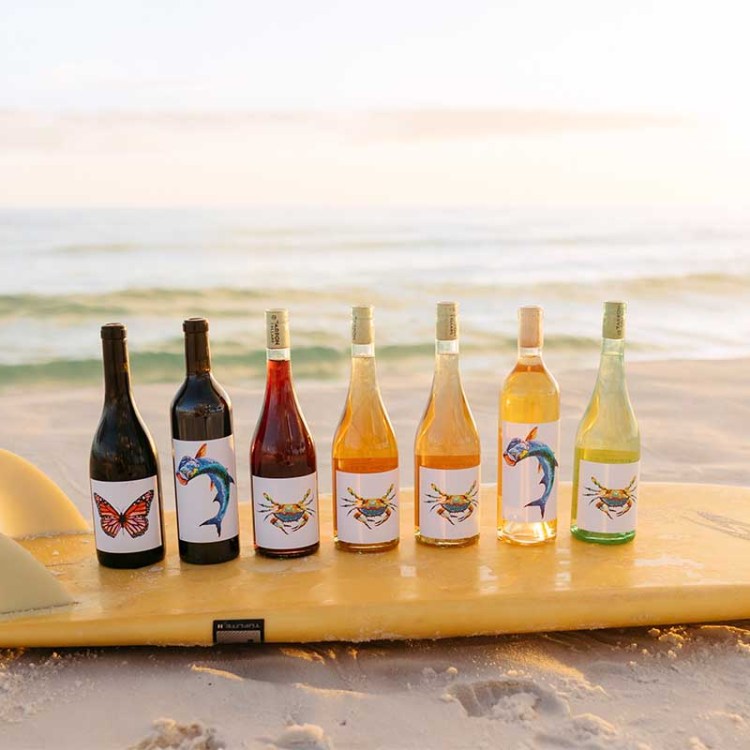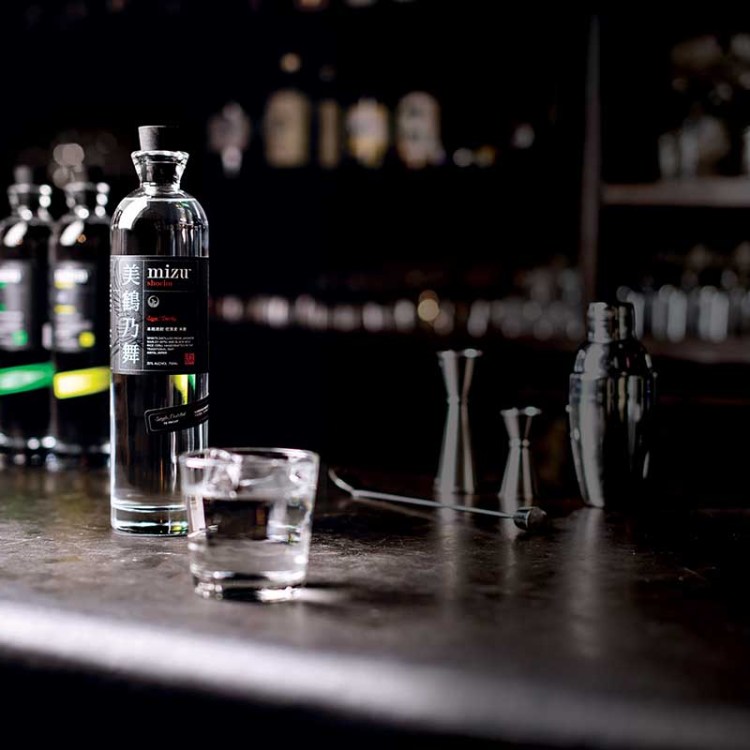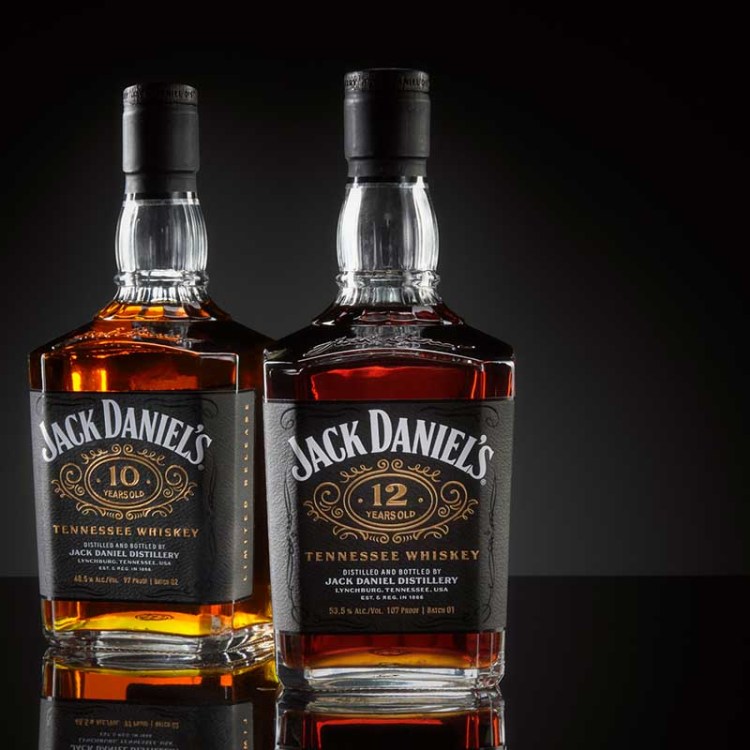You don’t need me to tell you that the craft beer world is overwhelmingly white. In fact, it’s so white that things like an enthusiasm for IPAs, along with other stereotypical traits like coffee snobbery and indie rock fandom, have become a sort of clichéd shorthand for a very specific type of pretentious white man.
And yet, even when you already know the craft beer industry has a long way to go when it comes to diversity, the numbers are staggering: despite being 13 percent of the country’s population, Black people account for just one percent of brewers in the United States, according to a 2019 survey by the Brewers Association. There are a number of reasons why that is, of course, but as Latiesha Cook — the CEO of Beer Kulture, a St. Petersburg, Florida-based non-profit that aims to increase diversity and inclusion in craft beer through educational programs and community-based initiatives — points out, often it’s as simple as breweries failing to step outside of their own bubbles.
“From what I’ve read, what I’ve seen, what I’ve experienced, a lot of it is you know, when you’re starting out cheaply in an urban area, you tend to bring your best friend with you, your brother, your sister, because you don’t have the funds to bring a bunch of people in at first,” she tells InsideHook. “And so often you have people who look like you, who act like you, who you identify with, but there hasn’t been an opportunity to bring anybody from the outside in. So it starts that way initially, and then what happens is when you start to hire, you ask those people, ‘Hey, who do you know that’s looking for work?’ or ‘Who are you connected to that would want to apply here?’ And what happens with those people? Those people reach out with the people they’re connected with. And so a lot of times, it isn’t people outside of your group of people. That’s the problem. We need to start thinking of this like any other business and being very intent about our hiring practices, and that is lacking in this industry.”
Founded by Cook and her husband Dom, Beer Kulture initially launched as a lifestyle brand, but this past July, the company rebranded as a non-profit dedicated to promoting diversity within the craft beer industry while also raising funds for local charities and underserved communities through initiatives like Kulture 4 Da Kids, for which the organization partnered with breweries across the country to collect 4,300 backpacks filled with school supplies for students in need. (“The reasoning behind that was to create an opportunity for breweries to connect with the people right in their backyards,” she explains. “The feedback was amazing, a lot of our brewery partners communicated that they were able to connect with people that they didn’t even know existed right around the corner from where they are.”)
“Rebranding essentially came from just wanting to do more than what we were,” Cook says. “Beer Kulture, when we started in 2016, we funded everything ourselves from our pocket. Working a day job and then having a family and your own household to take care of, it became kind of hard to maintain that business, and so we decided to invite other people on the journey so that we can reach more people and then also continue to be the glue that bridges the gap between the craft beer space and the communities in which they’re in. Since we’ve done that, things have really kicked off in terms of support.”
Beer Kulture’s relaunch comes at a time when many others in the craft beer world are doing their best to help those who have been shut out of the industry find their way in. In July, Brooklyn Brewery brewmaster Garrett Oliver announced the launch of the Michael James Jackson Foundation for Brewing and Distilling, a scholarship fund for BIPOC brewers and distillers — aspiring or established — to further their education in the field. “I’ve been sitting in the brewmaster’s chair for more than 30 years, and I’ve never seen a single African-American applicant for a brewing job,” Oliver recently told the New York Times.
Of course, craft beer’s diversity problem is reflective of a much broader problem in society in general, and nationwide protests this past summer over the horrific murders of George Floyd and Breonna Taylor inspired many brewers to do whatever they can to help combat systemic racism. Weathered Souls, a Black-owned brewery in San Antonio, launched the “Black Is Beautiful” brewing collaboration. Participating breweries are asked to donate 100 percent of their proceeds from the imperial stout to local foundations that support police brutality reform and legal defense funds for those who have been wronged, as well as commit to “the long-term work of equality.”
That emphasis on long-term work is key. Commitment to change and diversity needs to extend beyond lip service or a one-time collaboration. Cook says Beer Kulture is currently partnered with six to seven breweries on collaborative beers, and the company works hard to ensure their partners are all in it for the long haul. “Our selection process is pretty strict,” she says. “We like to work with people who we know are committed to doing this work, so by that we don’t mean a brewery who decided to do a one-time collab and then now they think that they’re inclusive and diverse. No, this is people who are committed to long-term work.”
“It’s kind of like a diet, right?” she explains. “You don’t just say ‘Yeah, I’m gonna eat salad today and then I’m good, I’m healthy.’ No, you’re committed to it every single day, so every day you make a decision to eat a salad or something that’s gonna be good for your body. So the same thing here: each brewery has to make a decision to be committed each day. So what that means is that based on your business, if it’s hiring, you’re going to bring in diverse candidates. And I’m not saying you shouldn’t hire white people. Of course you should, right? But you need to hire all kinds of people. There are many different kinds of people in these communities; bring those people in. Not even limited to just hiring, the people that you’re reaching out to in terms of collaborations, a lot of times we’re collaborating with people or groups who are exactly like us. No, reach out to a lot of those mom-and-pop shops in your community, reach out to a lot of the Black businesses in your community. Try to diversify a lot of the people and groups you’re bringing in for collaborations. It’s just being committed daily, and that’s going to look different for each brewery, but they need to make the choice to do what’s right each and every single day.”
In addition to working with breweries on collaborative beers, Beer Kulture has tapped into its diverse network of craft brewing enthusiasts and experts to put together a job board that connects breweries to a pool of BIPOC applicants. The company also offers a number of quarterly scholarships to help underrepresented minorities pursue certification as a cicerone, the beer equivalent of a sommelier. One such scholarship makes its intentions clear with its name: “This Ain’t the Beer That You’re Used To.”
“I named it that very purposefully because my husband helped found Beer Kulture, we founded it together years ago, and his experience upon coming into this industry was not a great one, which is why we got a lot of the notice we did in the beginning,” Cook says. “He was a certified cicerone, started as a certified beer server, became a certified cicerone, a BJCP [Beer Judge Certification Program] beer judge, I mean, you name the qualification, he got it. And he was consistently told no when he was looking for jobs because he didn’t ‘fit the current culture.’ And those were specific words of feedback from people who were hiring. ‘You’re great, you’re knowledgeable, you can do the job, but you just don’t fit the culture here.’ And what does that say to somebody who’s trying to get in? What does that mean, you don’t fit the culture? And so the This Ain’t the Beer That You’re Used To scholarship helps individuals exactly like that. It helps you get that knowledge and that footing that you’re looking for in order to enter this space, and then that works in conjunction with the job board for people who are purposely looking for candidates that qualify.”
Despite all the frustrating stories of overqualified minority candidates being turned away from craft beer jobs because they “don’t fit the culture,” Cook remains optimistic about the future of the industry. Diversity certainly doesn’t happen overnight, but there’s a growing number of people working hard to achieve it, and that’s heartening to say the least.
“I will say, looking at the craft community, it makes me hopeful because of the people,” she says. “People are really committed and doing great things to ensure that we are really creating the space that we deserve. That excites me. That makes me happy. That gives me an extreme amount of hope for the future of craft beer. There are people out there who are committed, and I mean extremely committed. They are leaving their day jobs, they are on the ground and committed to this work. And even people who have kind of looked away or turned a blind eye in the past, they’re committed, they’re coming to the light and they’re doing the work that is required. I think we’re in a great space. Where we are as a country, as a whole, there’s a lot of things that divide us, but there are a lot of people that are committed to bringing us together, and that gives me an immense amount of hope.”
This article was featured in the InsideHook newsletter. Sign up now.

